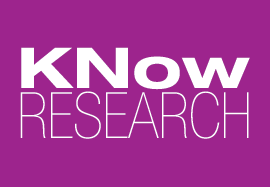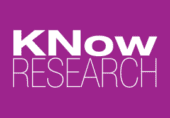4 Remote Work Strategies to improve your work and your research
Over the years, our team of remote researchers have developed a collection of personal and collective strategies to keep productive and mange our energy.
This article is inspired by my LinkedIn blog post “How I Manage My Energy While Working Remotely”
We know well that working remotely over an extended period of time is very different from working remotely every once in a while and we’re here to help those who may be new to working remotely. You’ve suddenly got a lot more flexibility, but you may not know where to start to make working remotely work for you.
We recommend building a strategy built around understanding how you work best to optimize remote work. And by “best,” we mean how to leverage your energy in a way that leads to productivity, is sustainable over time, and is enjoyable!
The side benefit of using these strategies is that they relate directly to the research we recommend, design and facilitate.
Use the following 4 Remote Work Strategies to improve both your work and your projects!
1. Keep Track of How You Spend Your Time
Log your hours to understand what you’re doing and how long it takes you. This insight will help you better schedule and plan your time accordingly in the future.
Have trouble remembering what you did yesterday? Make it easy for yourself. Try using a planner to not only plan your time, but to log what you’re working on and how long it takes. Every time you complete an activity, write it in to my planner: “Report writing, 2-4 PM”.
Then add up your total hours at the end of each day and review what you did at the end of each week or month. You’ll have a better understanding of how long each project takes and am reminded of what you accomplished and start to see the patterns you need to set your schedule!
Insights Bonus: Apply this knowledge to better design projects, specifically around timing and scheduling. While many researchers – both supplier and client-side – are familiar on a high level with how long it takes to complete a project, this granular knowledge will give you skills to build and time a project from beginning to end. And when a Plan B is needed, it’s infinitely easier to pivot and accommodate the unforeseen when you know how many additional hours of report analysis and writing you’ll need when adding in another customer segment, and what that will mean for final deliverable dates.
Added Insights Bonus: This process will also help you appreciate how long it will take your participants to complete pre-tasks, online exercises, mobile activities, etc. Remember, when giving participants assignments, the most important thing is to set – and then live up to – their timing/involvement expectations
2. Find Spaces That Work For You
Where do you like to work? Working remotely doesn’t necessarily mean working from home. You can technically work from anywhere that meets the minimum requirements for your role (e.g. a secure Internet connection, somewhere to place your computer), but you probably have more preferences to take into consideration. Take some time to understand what environment works best for you!
You might need a roster of multiple spaces to tap into to meet whatever your needs are in that moment. For example, you might start my day off with conference calls from home where you have most control over my space and sound. But you might feel antsy after lunch and head to a coffee shop to change up the scenery and be around people. I even have days when I really want to put my feet up in front of a fireplace and will head to my favorite hotel lobby just to work in front of a fire.
Insights Bonus: Location matters! When conducting qualitative research, pick a location that fulfills the goals of a research project and that meets the needs of everyone involved. Think outside the traditional focus group setup of conference tables and chairs. Could a change in scenery or even just furniture arrangement in a focus group facility put participants more at ease and contribute to deeper insights?
Don’t be afraid to try something new. Start by putting yourself in the participant’s shoes and ask yourself where you might want to go to have a conversation. Or maybe go to where participants already are. Consider a KNow Research Pop-Up Insights Booth to intercept participants in their daily lives or at an event. Maybe the project or circumstances call for conducting online research so participants can join from the comfort of their own home. We are KNow Research are well-versed in fielding remote group discussions and interviews, as well as online boards. Reach out to learn more about our remote offerings.
3. Procrastinate
Take breaks! Don’t feel guilty about not working every available minute you’re able to. I believe wholeheartedly in the phrase, “Just because you can doesn’t mean you should”. You’ll most likely be more productive later on. And inspiration may strike when you stop struggling over a problem.
Working for 8 hours from home is not equal to working for 8 hours in an office and you might not have as many of the natural breaks as when you worked on-site. Think of all the downtime you have while working in an office: chatting with co-workers, walking to lunch, grabbing a coffee. And these don’t even include special occasions like Office Thanksgiving, someone’s birthday, or charity chili cook-offs.
So, when you’re working remotely, build in as many breaks as you need so you can dive back into your work later and be refreshed. There’s a reason why there are all those aforementioned breaks in offices. People need them. Make sure you afford yourself the same benefits!
Insights Bonus: Consider rhythm and pacing when designing research projects. Here are our favorite ways to bring pacing and breaks into fieldwork:
- Intersperse difficult activities/conversation topics with more lighthearted activities.
- Give people breaks to caffeinate, walk around, breathe deep, etc. if you’re doing research in-person (especially early in the morning or late at night!)
- If you’re online, spice up that diary study with a few questions for group discussion.
- Prioritize debriefs during fieldwork. When you do so, be sure to schedule enough time between research sessions to make changes if needed and rethink your usual Day 1 Post-Group De-Brief. Would a de-brief in the morning be better, when everyone has more energy and insights have more time to simmer?
4. Cultivate Your Connections
It’s easy to feel stagnant and lonely while working remotely, so get out there and make connections! If you don’t know where to start, start by looking for industry-specific events. These events can be a time to step away from your laptop and be around people. Or you can think if it as a game of Who Will I Meet Today! There are so many interesting people out there and it’s part of the fun to see who you might cross paths with.
Personally, as an introvert, I used to loathe heading to networking events because I felt like I failed if I didn’t leave with something tangible, like one meaningful connection. I decided to change my goals and not measure the success of a networking event like that. Instead I go now to check out a cool workspace, have a bit to eat, learn something and everything else is extra.
Now that events are going virtual, it’s time to build new digital connection skills. Be sure to use the chat function on webinars, connect with fellow attendees on LinkedIn and bring learnings from streamed events back to your team to make sure you are still reaping the benefits and cultivating your connections digitally.
Insights Bonus: We keep our connection, empathy and investigation skills sharp at these events so that we’re ready for our participants! Meeting people, establishing report and getting to know interesting things about them is what we do for a living, so practice new approaches at these pressure-free events. Try out your warmup questions. Practice active listening. At the end of the event, write down a few key themes you heard from talking to a collection of people. ABC; Always Be Connecting!

